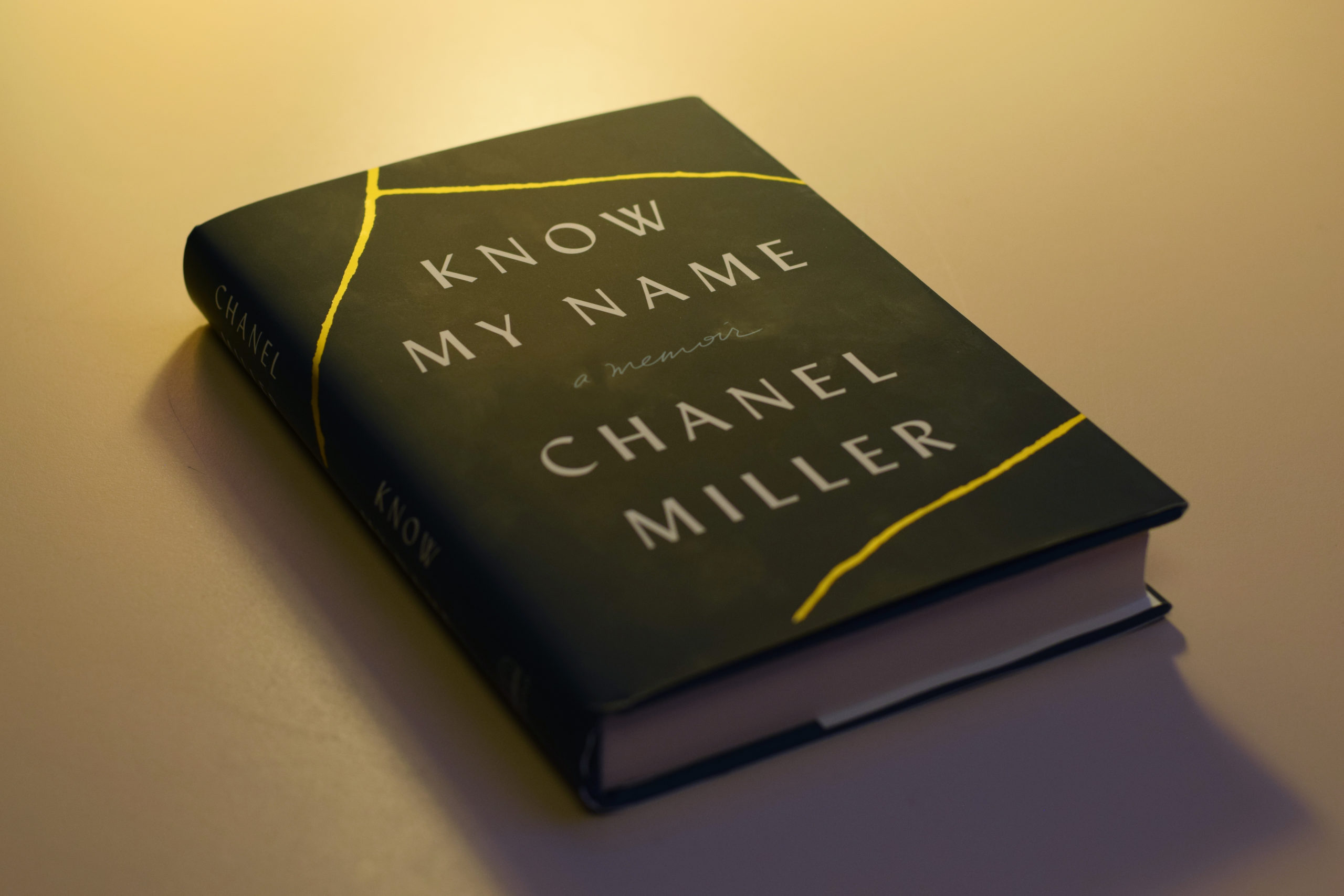The University did not choose Chanel Miller’s memoir “Know My Name” as one of the Class of 2024’s Three Books, despite a petition in favor of the book’s inclusion gathering nearly 1,500 signatures from members of the Stanford community.
The petition was “read and considered,” according to Vice Provost for Undergraduate Education Sarah Church, who is a part of the group responsible for selecting the books.
Three Books is Stanford’s common reading program, and it has been a tradition since 2004. All incoming frosh and transfer students are given the same three texts to read over the summer with the purpose of bringing them together for discussion. The University also typically invites authors to speak at New Student Orientation.
Led by comparative literature professor David Palumbo-Liu, the petition aimed to raise awareness of Miller’s story to frosh and the broader community at Stanford. Upon learning about the administration’s failure to choose “Know My Name,” Palumbo-Liu wrote an email on Aug. 30 to Church as well as those who were tasked with selecting this year’s Three Books.
“Given the truly terrible times, when a sitting president has waved his acts of sexual harassment and misogyny like a proud flag, when his secretary of education has used her office to decimate Title IX, one would think any institution with a conscience would consider this book to be essential and of immense support to all our students,” Palumbo-Liu wrote. “I am completely ashamed of Stanford, and I, and 1,500 other people, demand an explanation.”
Three days later, Palumbo-Liu received a response from Church, who wrote that the petition was one of the “many factors and many discussions” in selecting the three books.
“The books that students will receive address timely issues, issues particularly relevant to new students and ideas that will stimulate critical student conversations,” Church wrote.
This year’s Three Books, which were all digitally provided to undergraduate first-year and new transfer students, are “Grit” by Angela Duckworth, “Between the World and Me” by Ta-Nehisi Coates and selected readings on race, class and education.
Coates’ memoir was ultimately chosen instead of Miller’s in order to address “one of the most pressing issues of the moment, being Black in America,” Church wrote, which the selected readings would supplement. Duckworth’s book was chosen for its themes of resilience and perseverance, which Church said “will be especially important for first-year students in this unusual year.”
“There is no doubt of the power and importance of Chanel Miller’s book,” Church wrote at the end of her email. “I look forward to talking with you about other ways in which students can engage with her testimonial and her powerful message.”
After hearing Church’s reasoning as to why Miller’s memoir was not chosen, Palumbo-Liu wrote in a statement to The Daily that “given the fact that Stanford says it cares about and indeed prioritizes issues of campus safety, student well-being, sexual harassment and sexual violence, it seems odd that Chanel Miller’s book would fall so far outside the sphere of ‘timely issues particularly relevant to new students.’”
Palumbo-Liu also challenged the University’s emphasis on seeking student and community input in his statement.
“Here is what I find hard to square: Given the fact that Stanford professes to care about and indeed actively solicits student and community input, it is odd that when 1,500 students, faculty, staff, alumni sign a petition urging Stanford to make ‘Know My Name’ part of the Three Books, Stanford ignores them,” Palumbo-Liu wrote.
Nevertheless, activists like Associated Students for Stanford University senator Mia Bahr ’22 still aim to inform students about Miller’s story and take measures to protect other survivors. Last year, Bahr proposed a resolution — that was passed by the Undergraduate Senate — that aimed to clarify the specific language used in campus sexual assault policy and to highlight suggestions for increased funding and awareness for sexual assault survivors.
“Chanel’s story is unfortunately not uncommon at Stanford, nor is it at other universities in America,” Bahr said. “If Stanford truly wanted to create a meaningful dialogue surrounding sexual violence, including ‘Know My Name’ as one of the Three Books for this year would have been the best way to do so.”
Bahr, who has been working with student organizations and fellow student activists, hopes to continue working to protect survivors on campus.
“Ultimately, I believe the best way forward now is to make sure that everyone on campus not only knows Chanel’s story, but that they also know Stanford students are fighting to get justice on behalf of her and every other survivor that has been silenced by the University,” Bahr said.
Contact Camryn Pak at cpak23 ‘at’ stanford.edu.
